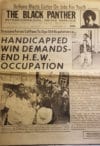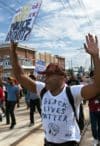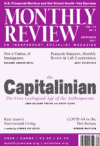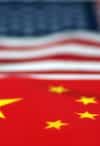
The Long Haitian Revolution
The current situation in Haiti has roots in the historical struggle of the Haitian people, and is part of the endless retribution from imperial powers for its revolution. | more…

The current situation in Haiti has roots in the historical struggle of the Haitian people, and is part of the endless retribution from imperial powers for its revolution. | more…

For many disabled people, the “abnormal” state of things over the last year and a half is not such an estranged discontinuity from the previous state of things. Certainly, just like everyone, pandemic life for disabled people has been exceedingly difficult, painful, oppressive, and deadly. But the “normal” of pre-pandemic life was also exceedingly difficult, painful, oppressive, and deadly. | more…

In order to commit murder or mayhem under this program, vouchers must be submitted within one week prior to the actions contemplated or within a month afterward. Persons who commit violent acts without valid vouchers will be asked to enter into Voluntary Consent Agreements to desist from unauthorized murder or mayhem, and up to one tenth of any ill-gotten gains will be donated voluntarily to the charity of their choice, without any implication of admission of guilt. | more…

A new poem by Marge Piercy. | more…

A new poem by Black Agenda Report poet-in-residence Raymond Nat Turner. | more…

In 2004, Washington launched a whole new strategy of financial war, based on the role of the U.S. dollar as the hegemonic foreign-exchange currency, to cut off the economic circulation of targeted states. The United States has created, as part of its “rules-based international order,” a coercive global framework extending U.S. financial jurisdiction to every country, economic entity, and person engaged at any point in U.S. dollar transactions anywhere in the world. | more…

“Nation of immigrants” discourse is generally used to counter xenophobic fears, but the ideology behind it also works to erase the scourge of settler colonialism, the lives of Indigenous people, and the history of enslaved Africans and their descendants. | more…

In 1970, the French left-wing filmmaker Chris Marker made a twenty-minute documentary about the French left-wing publisher François Maspero. Fleetingly, we catch a glimpse of two publications pinned side by side on one wall, seemingly granted special placement: a copy of The Black Panther newspaper and a Monthly Review. Hardly surprising is this prominence: Maspero’s relationship with Monthly Review was always fraternal, both interfaced with one another, shared lists. Together, they helped define what that New in the Left would mean. | more…

Forthcoming in June 2021
In March 2015, President Obama initiated sanctions against Venezuela, declaring a “national emergency with respect to the unusual and extraordinary threat to the national security and foreign policy of the United States posed by the situation in Venezuela.” Each year, the U.S. administration has repeated this claim. But, as Joe Emersberger and Justin Podur ague in their timely book, Extraordinary Threat, the opposite is true: It is the U.S. policy of regime change in Venezuela that constitutes an “extraordinary threat” to Venezuelans. Tens of thousands of Venezuelans continue to die because of these ever-tightening U.S. sanctions, denying people daily food, medicine, and fuel. On top of this, Venezuela has, since 2002, been subjected to repeated coup attempts by U.S.-backed forces. In Extraordinary Threat, Emersberger and Podur tell the story of six coup attempts against Venezuela. | more…

The imperialist world system, crowned by U.S. hegemony, is now threatened by China’s seemingly inexorable rise and pursuit of its own distinctive sovereign project. In this respect, the Trump administration’s prosecution of a New Cold War on China was no anomaly, but rather the inevitable U.S. response to China’s rise and the end of Washington’s unipolar moment. The Biden administration has made it clear that it not only intends to continue the New Cold War, but to accelerate it. | more…

U.S. fantasies of expansion, commercial dominion, and military prowess have long hinged on a premise of Pacific exceptionalism. Couched in the millenarian language of manifest destiny, the Pacific region and its multitudinous ecosystems, cultures, peoples, and nations have been vacated in favor of an aqua nullius that frames the region as an empty space designated for U.S. possession by divine providence. | more…

The war against fascism was transformed into the Cold War. U.S. imperialism, subdued somewhat by post-First World War isolationism, came into full flower. Washington implemented this sea change in many ways, including the division of the Korean Peninsula. | more…
Notifications